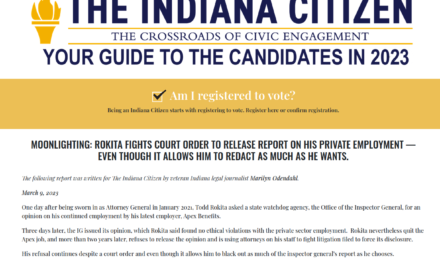Lesson: Do your homework and utilize retention policies if missing data is provided as the excuse.
In this opinion, Indiana’s Public Access Counselor Luke Britt, provides the following opinion: the Battle Ground Conservancy District should release the lead and copper test site reports record in question.
This case involves a dispute about whether a conservancy district may rely on the discretionary disclosure exception
available to a municipally owned utility as authority to deny access to certain district records.
On December 6, 2019, Ronald Evans (“Complainant”) filed a public records request with the Battle Ground Conservancy District (“BGCD”) seeking the district’s 2012 lead and copper test site reports.
That same day, Evans received a copy of the 2012 reporting form, but it did not include the addresses of the testing sites like last year’s report. Instead, a number identified each address.
It the origins of the dispute stem from the retention policies of the BGCD:
Evans contacted the district to ask for a copy of the form that included the addresses of the test sites. Carol Watson, Board Chair of the BGCD at the time, denied the request for the addresses, claiming that the required retention time for that kind of information had expired.
But then once Evans points out that the BGCD must retain this information for 12-years, the information was magically found and a new excuse was given and another exemption was claimed.
On December 9, 2019, Evans rejected Watson’s claim by arguing that Title 327 of the Indiana Administrative Code sec-tion 8-2-47 required the BGCD to retain lead and copper records for 12 years. Watson agreed with Evans’ argument, stating that the BGCD had the addresses. Regardless, Watson again denied Evans’ request for the addresses. Watson relied on Indiana Codesection5-14-3-4(b)(20),which gives a public agency discretion to withhold certain personal in-formation of customers of a municipally-owned utility including addresses, telephone numbers, and social security numbers.
To continue reading this fascinating piece of open government history in Indiana, you can download the PDF on the PAC’s web site here: https://www.in.gov/pac/advisory/files/20-FC-2.pdf






Recent Comments